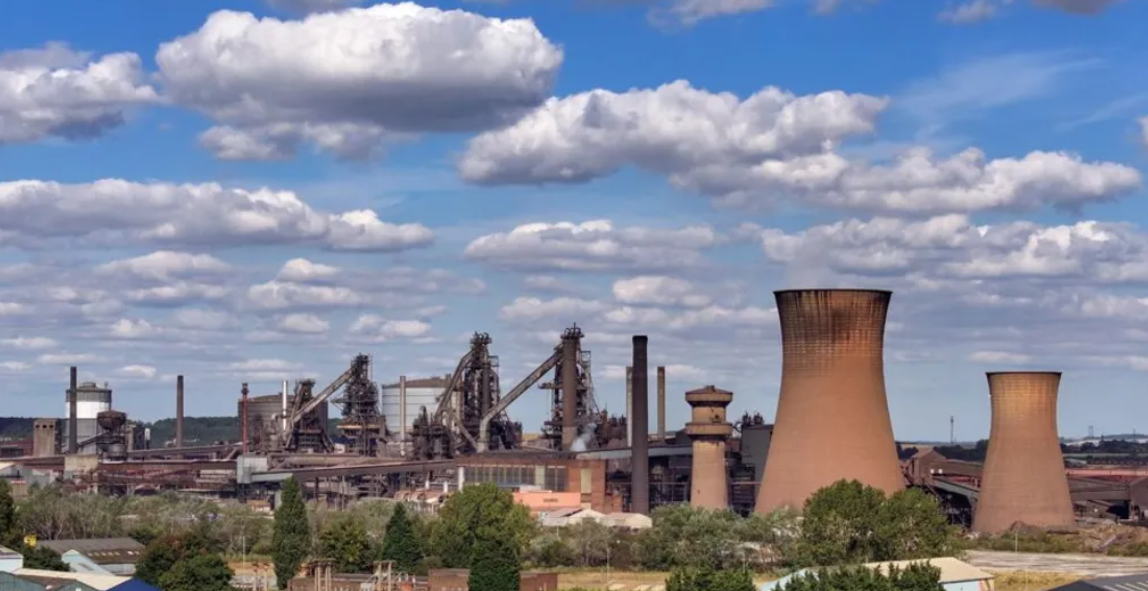British Steel is launching a consultation that could lead to the closure of its two blast furnaces in Scunthorpe, putting up to 2,700 jobs at risk out of a total workforce of 3,500. The company stated that the blast furnaces are no longer financially viable due to challenging market conditions, the impact of tariffs, and rising environmental costs.
It is understood that British Steel was hoping for a £1bn government bailout to keep the business afloat but was instead offered £500m. A spokesperson for the Prime Minister said the government had made a “generous offer” to British Steel and would continue to work with the company and its Chinese owner, Jingye, to ensure its future.
British Steel’s CEO, Zengwei An, stated that the decision to consult on the potential closure of the blast furnaces was “necessary given the extremely challenging circumstances” the company is facing.
Gareth Stace, the director general of the trade group UK Steel, called the announcement a “pivotal moment” for the industry, stating that the steel sector is “officially in a crisis.” Roy Rickhuss, general secretary of the Community union, referred to the development as “a dark day” and urged both Jingye, the company’s Chinese owner, and the UK Government to resume talks before it’s too late. The GMB union described the news as “devastating,” while Unite general secretary Sharon Graham condemned the situation, calling the potential job losses “a disgrace.” She accused British Steel of attempting to “hold the government to ransom” and using its committed workforce as “pawns.”
British Steel has been owned by the Chinese company Jingye since 2020. Jingye claims to have invested over £1.2bn into the business to keep operations running, while also reporting financial losses of approximately £700,000 per day.
The company has proposed a £2bn business plan, which was presented by Allan Bell, the chief commercial officer, during a hearing with the Business & Trade Select Committee. Bell emphasized that the only viable option for British Steel’s future, especially in terms of decarbonization, is to transition to 100% electric arc furnace steelmaking. He added that this major project would require government support, as the private sector alone would not be able to fund it.
It was expected that the government would match the investment on a 50/50 basis, but the government only offered £500m, which British Steel rejected.
Responding to questions about the future of the Scunthorpe steelworks, Business and Trade Minister Sarah Jones stated that the government had made a “generous conditional offer of financial support” after months of negotiations with British Steel. She mentioned that for the government to provide significant public funding, the company needed to make necessary commitments. Jones urged British Steel to reconsider its closure plans and accept the offer.
British Steel indicated that it would continue to collaborate with the UK government to explore future options for the business. The company has begun a formal consultation process with its employees and unions, presenting three potential options:
- The closure of the blast furnaces, steelmaking operations, and Scunthorpe Rod Mill by early June 2025.
- The closure of the blast furnaces and steelmaking operations by September 2025.
- The closure of these operations at a future point beyond September 2025.
Business and Trade Secretary Jonathan Reynolds acknowledged the anxiety this situation brings to the staff but assured that the government would continue working to reach an agreement with the company’s owners to secure the future of British Steel and protect taxpayers’ money. Reynolds also reiterated the government’s commitment to the steel industry, announcing up to £2.5bn in funding to rebuild the sector and revealing plans for a sustainable future for the industry and its workforce.














